Kate Zambreno’s To Write as if Already Dead is, in part, a study of writer/photographer Hervé Guibert’s To the Friend Who Did Not Save My Life. Guibert’s book, published in French in 1990, is a thinly veiled autobiographical narrative about AIDS, following the protagonist from his discovery that he has the illness through an increasingly severe decline. Michel Foucault features in the book as “Muzil,” a friend who is also suffering from AIDS; so does French actress Isabelle Adjani, as “Marine.” The book made Guibert a celebrity. Zambreno reads it in the context of the Covid-19 pandemic and her own medical suffering.
But that’s just the seed of this complex, daring new book. She has written it, Zambreno says, for a contract: her family needs money, she is pregnant with another baby, and her temporary teaching positions lack necessary benefits. Yet the book, which Kirkus describes as a “meta-memoir,” escapes her original grasp. In doing so, it expands, delightfully, to take in a host of other concerns, including literary friendship—and betrayal—motherhood, the pandemic, Black Lives Matter protests, and the brutal shortcomings of our healthcare system.
This interview was conducted over email, shortly after Zambreno was awarded a 2021 Guggenheim in nonfiction. I was finishing up a brutal semester of teaching, and apologetically sent her my questions weeks late. She, doubtless also finishing up her semester, plus dealing with, well, winning the Guggenheim, nevertheless amazed me with a response sent less than 24 hours later, elaborating thoughtfully and carefully on each in my long list of questions.
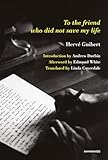 The Millions: To begin, could you talk a little about the decision to write this book in the immediate present tense? I’m referring here to your literal tense, but also, of course, the inclusion of extremely recent events like Covid-19 and the Black Lives Matter uprising. Everyone has heard the advice to wait before writing about an experience, and there was also a hasty wave of pandemic literature published early on, in which, as you observe in the book, “Every writer with a byline publishes a coronavirus diary, even if they are never sick, especially then.” Were you at all unsure about ending the book on a necessarily unresolved subject—a pandemic and political movement still being felt in profound ways around the country and world?
The Millions: To begin, could you talk a little about the decision to write this book in the immediate present tense? I’m referring here to your literal tense, but also, of course, the inclusion of extremely recent events like Covid-19 and the Black Lives Matter uprising. Everyone has heard the advice to wait before writing about an experience, and there was also a hasty wave of pandemic literature published early on, in which, as you observe in the book, “Every writer with a byline publishes a coronavirus diary, even if they are never sick, especially then.” Were you at all unsure about ending the book on a necessarily unresolved subject—a pandemic and political movement still being felt in profound ways around the country and world?
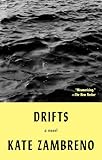 Kate Zambreno: The book is divided into a diptych—there is a story in the first part, “Disappearance,” that takes place in a more speculative time period (there are references to the museums being closed, and the daughter being out of school), and then the second half, “To Write as if Already Dead” is a first-person notebook with the catalyst or impetus of a bodily deadline in which to finally write this study on Hervé Guibert, which has the vertiginous thrust of the novel being circled around, To the Friend Who Did Not Save My Life. Guibert’s novel, documenting his AIDS diagnosis as well as the death of his friend Muzil, based on his neighbor and intimate Michel Foucault, has as its frame the actual diagnosis but goes back in time to situate a chronology of his body and the portrait of various friendships and fallings out. Likewise, the second half of my study attempts to figure out how time works in Guibert’s book, and how narrative works in a sick body, and does so by adopting Guibert’s methods. As soon as I set about the project to write a date, as Guibert does, and attempt to move forward in a calendrical way, to write a diary at least as a frame, then it becomes a conceptual work about time, which Drifts was as well, in different modes. I couldn’t ignore the pandemic, and the twinning feeling of it, as I was writing of the AIDS crisis, I couldn’t ignore being in New York during the summer of protests, because that was the frame I had chosen for my book, to proceed forward in time. Plus thinking of Guibert became a way for me to think through the often-paralyzing intensity of the current moment. I feel lucky that I had a project like this to work on—for a couple hours a day it was another way to feel active, alive.
Kate Zambreno: The book is divided into a diptych—there is a story in the first part, “Disappearance,” that takes place in a more speculative time period (there are references to the museums being closed, and the daughter being out of school), and then the second half, “To Write as if Already Dead” is a first-person notebook with the catalyst or impetus of a bodily deadline in which to finally write this study on Hervé Guibert, which has the vertiginous thrust of the novel being circled around, To the Friend Who Did Not Save My Life. Guibert’s novel, documenting his AIDS diagnosis as well as the death of his friend Muzil, based on his neighbor and intimate Michel Foucault, has as its frame the actual diagnosis but goes back in time to situate a chronology of his body and the portrait of various friendships and fallings out. Likewise, the second half of my study attempts to figure out how time works in Guibert’s book, and how narrative works in a sick body, and does so by adopting Guibert’s methods. As soon as I set about the project to write a date, as Guibert does, and attempt to move forward in a calendrical way, to write a diary at least as a frame, then it becomes a conceptual work about time, which Drifts was as well, in different modes. I couldn’t ignore the pandemic, and the twinning feeling of it, as I was writing of the AIDS crisis, I couldn’t ignore being in New York during the summer of protests, because that was the frame I had chosen for my book, to proceed forward in time. Plus thinking of Guibert became a way for me to think through the often-paralyzing intensity of the current moment. I feel lucky that I had a project like this to work on—for a couple hours a day it was another way to feel active, alive.
TM: Early in To Write as if Already Dead, you refer to your “fascination with how writers have historically made money, and when this desire is expressed nakedly, how it affects the form.” This book, you tell us, is written for a contract. I’d love to hear more about the decision to write about how you make money in this book, and the book itself as money-maker—in direct contrast to the romantic idea of the novel as something born deep within your soul, the book you were born to write, etc. How does it affect your form?
KZ: Well, I made $5,000 before an agent’s cut for this book for Columbia University Press, spread across the three years I was supposed to write it—this was not a money-maker, like basically all of my works, I always spend far more time on them (and then editing them, and then promoting them) than would amount to an actual salary, but also of course I need that extra money, which probably went to a few months of family health insurance, which I pay out of pocket for, as I am an adjunct at the two places I’ve been teaching for close to a decade, or almost two months’ rent in Brooklyn. I also write about needing to sell the novel that is Drifts throughout the span of the second half of the Guibert study, in order to continue living in NYC and supporting my newly growing family. I think that the publishing industry and its adjunct institutions, the university, the MFA program, want to hide the question of money, and make everything about the romance of the writer, to hide the fact that writers, in all of their various ways—you and me having this conversation!—are workers for the publishing industry, and being workers, are precarious and vulnerable and often unpaid. I started being interested in the question of money and writing as I became more interested in the question of labor and bodies. But all of this is fed by Hervé Guibert’s novel, in which he writes openly about needing to make money and selling various books. I do think the speed of his illness books is catalyzed by survival energy, and this energy and speed is something I meditate on and enact in this work.
 TM: Relatedly, I was thinking while reading the book that I’m not sure I’ve ever seen a writer publicly write about doing research on Google Books, although I can only assume every researcher with Internet access has done so at some point in their lives! Later, you write that you’re reading The Compassion Protocol on a PDF on your phone. There’s almost a sense of the camera zooming out to show the writing and reading process itself as it is taking place. Why was it important to include these moments of radical reveal, banal as they might be?
TM: Relatedly, I was thinking while reading the book that I’m not sure I’ve ever seen a writer publicly write about doing research on Google Books, although I can only assume every researcher with Internet access has done so at some point in their lives! Later, you write that you’re reading The Compassion Protocol on a PDF on your phone. There’s almost a sense of the camera zooming out to show the writing and reading process itself as it is taking place. Why was it important to include these moments of radical reveal, banal as they might be?



 KZ: I don’t believe in purity, in terms of research methods, and am far more interested in the daily and embodied way that people actually read. Thinking of Moyra Davey cutting her Genet diaries in half and reading them on the train in Burn the Diaries (and reading on the train is also a very Guibert thing), or how Bhanu Kapil performs deleting her epigraphs in Ban en Banlieue. I feel I’ve read a lot of writing that’s not mine that does this—but perhaps this also bespeaks to the community of blog writers from a decade ago that the first half of To Write as if Already Dead elegizes. There was recently an essay by Aarthi Vadde and Melanie Micir about how Heroines restages an “amateur criticism”—they consider it alongside Virginia Woolf’s Three Guineas—perhaps I am playfully not trying to be a real scholar. Rephrasing Woolf in A Room of One’s Own, there is a freedom to being kept outside as well. Also, it’s been impossible to get into a library.
KZ: I don’t believe in purity, in terms of research methods, and am far more interested in the daily and embodied way that people actually read. Thinking of Moyra Davey cutting her Genet diaries in half and reading them on the train in Burn the Diaries (and reading on the train is also a very Guibert thing), or how Bhanu Kapil performs deleting her epigraphs in Ban en Banlieue. I feel I’ve read a lot of writing that’s not mine that does this—but perhaps this also bespeaks to the community of blog writers from a decade ago that the first half of To Write as if Already Dead elegizes. There was recently an essay by Aarthi Vadde and Melanie Micir about how Heroines restages an “amateur criticism”—they consider it alongside Virginia Woolf’s Three Guineas—perhaps I am playfully not trying to be a real scholar. Rephrasing Woolf in A Room of One’s Own, there is a freedom to being kept outside as well. Also, it’s been impossible to get into a library.
TM: To Write as if Already Dead plays with a variety of anxieties and challenges around performing the labor of writing, teaching, and bearing/caring for children all at the same time, from (eminently relatable) anxieties about healthcare and mortality to interrogations of your own fragmentary form. Can you expand on this—the book as Portrait of the Artist as Woman, Mother, Precarious University Worker, and more?
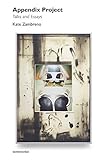 KZ: Yes, I do think this work does this (at least as a portrait of a mother, an artist, and precarious university worker, I also think and hope it plays with gender in more slippery ways) as do the lectures that make up Appendix Project, which I delivered at universities across the country in the first year of my firstborn’s life, bringing her with me. As does Drifts. I think becoming a mother has widened my understanding of the intense vulnerability of precarity, and how it’s a condition of the modern world (quoting Anna Tsing here) of which I am an extremely privileged yet still precarious art and university worker. I’m not interested in erasing that in my work, because so much of my impulses towards writing is a protest or provocation against disappearance or erasure. It’s telling that the thrust of both Drifts and this Guibert study, coincidentally, deal with the labor of pregnancy and intense anxieties of how to pay for it while working and anticipating working without any maternity leave. I will say a lot has been made over how fragmented my work is. I guess I don’t see it! I am interested in form. The Guibert study is a diptych, half fiction, half notebook, and I’m interested in the form of the day, of a paragraph, is a paragraph or passage a day, continuing with Guibert. Or maybe—of course it’s fragmented! I wonder if I read anything that’s not fragmented. What makes, I would counter, a work not fragmented? Isn’t a chapter a fragment? Isn’t a paragraph?
KZ: Yes, I do think this work does this (at least as a portrait of a mother, an artist, and precarious university worker, I also think and hope it plays with gender in more slippery ways) as do the lectures that make up Appendix Project, which I delivered at universities across the country in the first year of my firstborn’s life, bringing her with me. As does Drifts. I think becoming a mother has widened my understanding of the intense vulnerability of precarity, and how it’s a condition of the modern world (quoting Anna Tsing here) of which I am an extremely privileged yet still precarious art and university worker. I’m not interested in erasing that in my work, because so much of my impulses towards writing is a protest or provocation against disappearance or erasure. It’s telling that the thrust of both Drifts and this Guibert study, coincidentally, deal with the labor of pregnancy and intense anxieties of how to pay for it while working and anticipating working without any maternity leave. I will say a lot has been made over how fragmented my work is. I guess I don’t see it! I am interested in form. The Guibert study is a diptych, half fiction, half notebook, and I’m interested in the form of the day, of a paragraph, is a paragraph or passage a day, continuing with Guibert. Or maybe—of course it’s fragmented! I wonder if I read anything that’s not fragmented. What makes, I would counter, a work not fragmented? Isn’t a chapter a fragment? Isn’t a paragraph?
TM: You’ve said, of a previous book, “One of the great heartbreaks of my life is that I love poetry and I identify as a poet, but I’m not a poet.” I love that, and I think it points to an often-overlooked relationship between what’s defined as poetry and some forms of nonfiction prose. I’m thinking of Chris Kraus, for example, whom you mention in the book and who has articulated a similar attitude toward poetry. I wonder if you could talk more about your relationship to poetry and poets in To Write as if Already Dead?
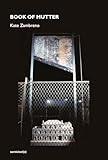 KZ: This was for a conversation I had with the lovely T. Cole Rachel in The Creative Independent, in the weeks after my first daughter was born (I had to look it up). I was being hyperbolic. I don’t think it’s one of the great heartbreaks of my life. I do think I considered Book of Mutter poetry, and wanted it to be considered as poetry, and how much that book got rejected was intensely despairing for me (as I also trace through the anhedonia of Drifts rejections in the current work—can I say I consider Drifts poetry as well? Can it be a poet’s novel if I’m not considered a poet?). There is no one else who would have published Book of Mutter as it was—literally nobody—except Chris Kraus and Hedi El-Kholti at Semiotext(e), who also commissioned Heroines and published Appendix Project. Their publishing project comes from such a place of brilliance and love. I don’t think Appendix Project has sold more than a couple hundred copies, if that. So I am a poet after all! I think TWAIAD traces through relationships with prose writers who are part of the poetics world that I met online, and a banishment I feel from a particular subset of that community. The heartbreak of community, of “The Poets.” But again, I’m being hyperbolic!
KZ: This was for a conversation I had with the lovely T. Cole Rachel in The Creative Independent, in the weeks after my first daughter was born (I had to look it up). I was being hyperbolic. I don’t think it’s one of the great heartbreaks of my life. I do think I considered Book of Mutter poetry, and wanted it to be considered as poetry, and how much that book got rejected was intensely despairing for me (as I also trace through the anhedonia of Drifts rejections in the current work—can I say I consider Drifts poetry as well? Can it be a poet’s novel if I’m not considered a poet?). There is no one else who would have published Book of Mutter as it was—literally nobody—except Chris Kraus and Hedi El-Kholti at Semiotext(e), who also commissioned Heroines and published Appendix Project. Their publishing project comes from such a place of brilliance and love. I don’t think Appendix Project has sold more than a couple hundred copies, if that. So I am a poet after all! I think TWAIAD traces through relationships with prose writers who are part of the poetics world that I met online, and a banishment I feel from a particular subset of that community. The heartbreak of community, of “The Poets.” But again, I’m being hyperbolic!
TM: Relatedly, how did you ultimately decide to name or not name the writers you engage with in the book, from the mysterious Alex Suzuki to “Bhanu” (the wonderful Bhanu Kapil, I assume) and “Sofia”?
 KZ: The Guibert study is dedicated to the genius Bhanu Kapil, and our conversations on caretaking and survival energy form part of the thinking in the book. I’m also playing with referentiality across Drifts and To Write as if Already Dead, so that book continues the conversations with Sofia Samatar, also a genius, in Drifts. I think of both books as friendships, more than any other genre (I reference Thomas Bernhard’s Wittgenstein’s Nephew throughout, also subtitled “a friendship.”) Guibert also plays with names (and facts) across his books, that he sees as linked together—there are some fictionalized names that are consistent, and others that change, and other real-life people (like Mathieu Lindon) whose names are not changed. Alex Suzuki is in many ways a fiction, based on a real-life genius, who was also part fiction—the first half of the book explores the concept of pseudonyms and personas—and “Disappearance” contains a good deal of invention.
KZ: The Guibert study is dedicated to the genius Bhanu Kapil, and our conversations on caretaking and survival energy form part of the thinking in the book. I’m also playing with referentiality across Drifts and To Write as if Already Dead, so that book continues the conversations with Sofia Samatar, also a genius, in Drifts. I think of both books as friendships, more than any other genre (I reference Thomas Bernhard’s Wittgenstein’s Nephew throughout, also subtitled “a friendship.”) Guibert also plays with names (and facts) across his books, that he sees as linked together—there are some fictionalized names that are consistent, and others that change, and other real-life people (like Mathieu Lindon) whose names are not changed. Alex Suzuki is in many ways a fiction, based on a real-life genius, who was also part fiction—the first half of the book explores the concept of pseudonyms and personas—and “Disappearance” contains a good deal of invention.
TM: I’m interested in the way you often write about the particular nexus of literary success (your shame at publishing books so quickly) and professional precarity (adjunct at an elite university). Do you worry about the repercussions of writing so honestly about the financial arrangements of the “life of the mind”? To what degree do you think the need to obtain a professional position through writing defines what people are publishing now and why?
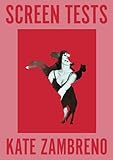 KZ: I think my shame at publishing books so quickly has more to do with my relationship of writing to shame, which probably involves also the family, without which I would not be a writer. It seems that I am writing constantly, I should also say, but that’s not the truth. I do write in a notebook constantly. But I just wrote an introduction to a book and I feel it’s the first writing-writing, like in a Word doc, I’ve done since giving birth at the end of August, besides revising the Guibert study. I have written a few books in a quicker time frame—Appendix Project over a year, the majority of the shorts that make up Screen Tests over a summer—but everything else took at least a few years, and often much more. Columbia UP is publishing this book months after it was finished, which is lightning speed in the world of publishing. It does seem like I constantly have books out, and I have been writing fairly consistently in the past four years, often because I have been under deadline.
KZ: I think my shame at publishing books so quickly has more to do with my relationship of writing to shame, which probably involves also the family, without which I would not be a writer. It seems that I am writing constantly, I should also say, but that’s not the truth. I do write in a notebook constantly. But I just wrote an introduction to a book and I feel it’s the first writing-writing, like in a Word doc, I’ve done since giving birth at the end of August, besides revising the Guibert study. I have written a few books in a quicker time frame—Appendix Project over a year, the majority of the shorts that make up Screen Tests over a summer—but everything else took at least a few years, and often much more. Columbia UP is publishing this book months after it was finished, which is lightning speed in the world of publishing. It does seem like I constantly have books out, and I have been writing fairly consistently in the past four years, often because I have been under deadline.
Anyway. Constantly having smaller books out is not actually the key to literary success, at least in terms of major publishing. I am supposed to write a big, coherent book, that can be translated into screen, and have it do well, and then repeat this again a few years later. I should appear on talk shows, and make bestseller lists, and excerpt in big places that want me, and promote the book for a solid year. Instead, I take on things like this Guibert project, like the lectures. I cheat on the projects I’m supposed to write with other projects. My books tend to get fairly ambivalent reviews. And still I keep on, because I do think my desire to write comes out of something insatiable, some internal need to write the kind of book that I will finally feel does what I want it to do…and publishing a book is perhaps a way that I can finish something. I think this is why I take on Guibert, because I’m interested in what appeared to be his hyperproductivity in terms of writing and publishing, and the why of it (what was the exact texture of his ambition?).
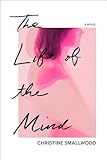 You ask about the repercussions of writing so honestly about the life of the mind (I am looking forward to reading Christine Smallwood’s novel of the same title.) I have wondered if there would be repercussions for writing so openly about not having maternity leave at the two places where I work, at least in Drifts, but I think that would involve them reading my work? There might be repercussions for writing about publishing in this new book. I think Philip Leventhal, my editor at Columbia UP, took it very well. I don’t know. It would probably help if my books sold better. Also I could just say it’s like the Ben Lerner baby octopus, or whatever. I did half-wonder if I would be burnt forever for joking about the genius grant in Drifts, like what if I did someday become a genius, would they hold it against me? But I just was awarded a Guggenheim, so maybe the publishing industry likes to feel they’re in on the joke? By the way, thank you Guggenheim committee, this was life saving, I now can pay for outrageously expensive family health insurance for the next two years.
You ask about the repercussions of writing so honestly about the life of the mind (I am looking forward to reading Christine Smallwood’s novel of the same title.) I have wondered if there would be repercussions for writing so openly about not having maternity leave at the two places where I work, at least in Drifts, but I think that would involve them reading my work? There might be repercussions for writing about publishing in this new book. I think Philip Leventhal, my editor at Columbia UP, took it very well. I don’t know. It would probably help if my books sold better. Also I could just say it’s like the Ben Lerner baby octopus, or whatever. I did half-wonder if I would be burnt forever for joking about the genius grant in Drifts, like what if I did someday become a genius, would they hold it against me? But I just was awarded a Guggenheim, so maybe the publishing industry likes to feel they’re in on the joke? By the way, thank you Guggenheim committee, this was life saving, I now can pay for outrageously expensive family health insurance for the next two years.
TM: I wonder if you could expand on the relationship between writing, shame, and the family? I find this is so insightful, and certainly so relatable, but I don’t know why. Why is shame so deeply entwined with writing? Is it, at least for you, a productive tension, or a destructive one?
 KZ: I almost feel if I could—fully—articulate the answer for myself then I would never have to write again. It is not lost on me that one of the reasons I feel deeply bonded to Hervé Guibert and, for that matter, Thomas Bernhard, whom Guibert is also channeling in To the Friend, and other members of the so-called Vienna Group, Elfriede Jelinek, etc., is because they are writing from and against a society rooted in the prurience and hypocrisy of Catholicism, also as it informed the repressive state and its policies, and as represented by the conservative petit bourgeois family. I recently wrote the introduction to the Portugeuse writer Maria Judite de Carvalho‘s 1966 novel, Empty Wardrobes, translated by Margaret Jull Costa, that will be published by Two Lines Press. The novel is set amidst the Catholic family and a sort of deadened interiority marked by gender expectations, the expectation to be the good mother, wife, daughter, daughter-in-law, etc., all the more brutalized amidst the Salazar regime. I became a writer as a way to write out of silence and silencing—whenever I see extended family, I am reminded that nothing has ever been or is still expected of me, I literally cease to exist, except for my role as a mother and aunt and daughter. There is a real freedom, however, to write amidst such invisibility from the family. I believe I write so as to continue to exist, and also to perform disappearance, nonexistence. I write knowing I inevitably shame my family by doing so, by writing at all about an interior life.
KZ: I almost feel if I could—fully—articulate the answer for myself then I would never have to write again. It is not lost on me that one of the reasons I feel deeply bonded to Hervé Guibert and, for that matter, Thomas Bernhard, whom Guibert is also channeling in To the Friend, and other members of the so-called Vienna Group, Elfriede Jelinek, etc., is because they are writing from and against a society rooted in the prurience and hypocrisy of Catholicism, also as it informed the repressive state and its policies, and as represented by the conservative petit bourgeois family. I recently wrote the introduction to the Portugeuse writer Maria Judite de Carvalho‘s 1966 novel, Empty Wardrobes, translated by Margaret Jull Costa, that will be published by Two Lines Press. The novel is set amidst the Catholic family and a sort of deadened interiority marked by gender expectations, the expectation to be the good mother, wife, daughter, daughter-in-law, etc., all the more brutalized amidst the Salazar regime. I became a writer as a way to write out of silence and silencing—whenever I see extended family, I am reminded that nothing has ever been or is still expected of me, I literally cease to exist, except for my role as a mother and aunt and daughter. There is a real freedom, however, to write amidst such invisibility from the family. I believe I write so as to continue to exist, and also to perform disappearance, nonexistence. I write knowing I inevitably shame my family by doing so, by writing at all about an interior life.
TM: You talk about the strangeness of talking to readers about a book once it has been published, writing, “I feel like I shouldn’t be included in the conversation. I am no longer the person who wrote that book, who wrote any of the books, and am not sure I can speak for them.” I’ve heard this from other authors. Of course, you don’t need to have a solution in order to validate a problem, but I wondered if you have a sense of what a better reader-writer relationship would look like? Is there a different conversation you want to be having with readers?
KZ: I like the reader-writer relationship as it is, prickly, intimate, invasive, tender, ambivalent! I’m incredibly grateful that my work does connect. It’s what I deeply desire. Whenever Drifts got a dick review I always hoped there are readers out there who did respond to it, who did deeply connect, even if they don’t write about it publicly, and hopefully the books live far longer than their press cycles. Having Drifts, and this book, come out, it feels like more of a vacuum, because I can’t have conversations with readers in bookstores and at events, which I do love to do. I think the conversation is, hopefully also, in the process of reading the book. But I also write writers I admire as well. That’s how I’ve formed community as a writer.
TM: I’m having some trouble articulating this question, but I want to ask about the role of fantasy in this book. For example, the ending. I don’t want to spoil anything for readers, but I wondered if it might point to some larger decisions you were making in this book. Was there a feeling that you needed to tell this story in a particular way, a way other than the way you ultimately ended up telling it? Was there a different kind of story you felt the reader might want to hear, about Guibert and about your own life?
KZ: I love the move that Nathalie Léger makes in her book on Barbara Loden, first, she didn’t talk about the book in interviews, so we have to only speculate what’s fact and what’s fiction, and it’s unclear what’s real and what’s fantasy—the whole trip to America that makes up the end of the book. You don’t know whether that actually happened. That’s all I will say!
TM: Speculation and the idea of the speculative also seems important. For Guibert, you write, “his survival was speculative fiction.” I hope it’s not overreading to suggest that this felt like a point of identification between Guibert and you as reader/writer. Guibert’s survival is speculative because he has AIDS in the 1980s, but also, it seemed, because survival is speculative for anyone who becomes a “medical subject.” Could you expand on this? What does that idea of speculative fiction mean to you in the context of this book, and, more broadly, of life as it is being lived right now under the pandemic?
KZ: I also read To the Friend Who Did Not Save My Life as structured or framed as a dystopic novel, utilizing some of the tropes of plague fiction, and ultimately it has an open-ended feel to the fate of the “hero” (the narrator) in the conclusion, the speculative survival you refer to, because also, that’s what it was like living with that disease that was shrouded in both secrecy and mystery. There’s no equivalent comparison between me being a medical subject and/or pregnant during a pandemic and the circumstances of dying from AIDS, however, but I do think being a medical subject can be an experience of alienation, and often an experience with the unknown. I don’t know if this answers your question directly, but life has become and continues to feel very weird, for years predating the pandemic and certainly now. Time is vertiginous, connections are mysterious and superstitious, bodies feel doubled and uncanny. The more my work feels speculative, crossing boundaries, the closer I am to achieving something that feels like lived truth.
Bonus Links:
—A Year in Reading 2012: Kate Zambreno
—A Year in Reading 2019: Kate Zambreno
—The Millions Interview: Kate Zambreno










